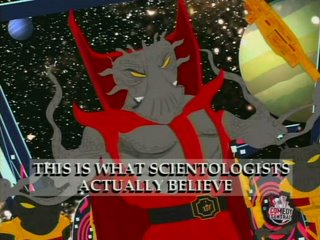
Well, it looks like it's finally going to happen. Many have been hoping for it and praying for it for years. Some have prayed that it wouldn't. It is a renewed battle over abortion in this country.
The stars began to align not too long ago, with the retirement of two supreme court justices and the appointment of two replacements who seem conservative enough to think about overturning Roe v. Wade. Roe was at the heart of the debate over both candidates, and a particularly bitter battle was fought over the confirmation of Samuel Alito, who once wrote the minority opinion favoring mandatory notification of the father of a potentially aborted fetus.
Wasting no time, the South Dakota House passed a bill that would outlaw nearly all abortions in that state, and its Senate quickly followed. Almost immediately, Mississippi's House passed a similar bill. And on March 6, the governor of South Dakota signed their bill into law.
OK, pro-lifers, where do you/we go from here? Assuming the S. Dakota and Mississippi laws are challenged all the way to the Supremes, and the neo-conservative court overturns Roe, what then? We have to ask ourselves some tough questions.
Most importantly, What's going to happen to all those newborns? Adoption (the loving option)? That will help, but it won't solve the problem. Over one million couples wait to adopt every year in this country, but the number of abortions supercedes by as many as 300,000. And that assumes that every couple that wants to adopt is eligible--financially, ethically--to legally adopt the child. Let's say, for the sake of argument, that
all the fathers of those unaborted

children rescind their parental rights (as unlikely as that may be)
and that 80% of those couples
are eligible; that leaves 500,000 helpless, unwanted human beings brought into the world.
What kinds of situations would these children be forced into? According to the Guttmacher Institute, women "with incomes below 200% of poverty made up 30% of all women of reproductive age, but accounted for 57% of all women having abortions." This poses a problem. If eligible couples adopt without regard for the economic situations of the biological parents, 285,000 children would be born into poverty. How likely are the children to succeed in life if they are born into the slums of Chicago's south side, Oak Cliff, Atlanta, etc? How will they eat? How will they attend school? The welfare system is already overstretched. Perhaps more importantly, how likely are these children of disadvantaged women to be the victims of abuse?
I ask because not only is the government ill prepared to handle the potential influx of economy-draining infants, the right and the Church are completely and utterly unprepared to do
anything about the situation. Most conservatives would not support government handouts for these new mothers, and this Republican-controlled congress would therefore most likely kill any bill that would further stretch the Fed's dollar for welfare "handouts." The impetus would then fall on non-profits and churches. How many of them are financially
and logistically prepared to undertake a project of such massive proportions, of caring for 300,000 newborns? I submit to you, none, or so few that their impact would be unnoticed. If neither the goverment nor the church can care for these children, what kind of public support will there be for an abortion ban? Surely, these malnourished, uneducated, emotionally, physically, and sexually abused children would have been better off never having been brought into the world to begin with. Which is the greater evil--to end a dead-end life painlessly before it is even cognizant, or to bring it into the world to humiliate, torture, and rob it of its dignity? The good citizens of these United States will not stand for the mass abuse of hundreds of thousands
additional innocent children.
Secondly, you/we, the pro-life camp, need to agree on when life
really does begin. Does it begin at fertilization, or does it begin at implantation? I ask because there exists an alternative to invasive abortion, one which could
solve the abortion debate, that begs an answer.
Plan B, or emergency contraception, can be taken within three days of unprotected sex to prevent a pregnancy. It differs from the controversial RU-486 in that it will
not work if a woman is already pregnant. Plan B prevents fertilization
or implantation, and it is impossible to control which. Bottom line: a zygote will not survive if it is not implanted in the uterus. Do we defend all human cell integration, or do we draw the line at viable embryos, ones that have a chance of surviving, ones that will certainly develop into a unique human life? A delineation of "human life" (that which contains human DNA) and "unique human life" (that which can and will develop into a unique human being) speaks to other issues as well, e.g. stem-cell research and medicine.
The lawmakers in South Dakota thought Plan B had some merit, and included a clause permitting its use in Section 3: "Nothing in section 2 of this Act may be construed to prohibit the sale, use, prescription, or administration of a contraceptive measure, drug or chemical, if it is administered prior to the time when a pregnancy could be determined through conventional medical testing." I quote Slate's William Saletan: "Look at that language carefully. It doesn't just say you can take a contraceptive drug before sex. It says you can take such a drug
after sex, as long as it's before conventional tests can detect a pregnancy."
Pro-lifers, now is the time to get your act together. Want to outlaw abortion? Great--come up with a plan to care for the lives that you defend; no mere
Modest Proposal will do. We can say life begins at fertilization, implantation, or sometime in the third trimester (as the law currently reads); nobody's going to listen to anything else. If at fertilization, then writing a provision for Plan B is construing, in ever so small a way, a right to murder a select group of human beings: those who are unfortunate enough to be the product of rape. If at implantation, then we need to fight
for contraception, including emergency contraception, to be distributed on-demand and at low- or no-cost. We must be prepared not only to fight, but to win, and to sacrifice our tax dollars, charitable contributions, and volunteer hours to deal with the consequences if we do. The majority of Americans believe that abortion is immoral, but even so most believe it should still be legal. Outlawing abortion will be an uphill battle, and a house divided against itself--believing one thing morally and legislating another--cannot stand.
Sources:
Patterns in the Socioeconomic Characteristics of Women Obtaining Abortions in 2000-2001, the Guttmacher Institute.
About.com Abortion Statistics
Take the Fifth, The Road from Roe, Slate
Reuters




